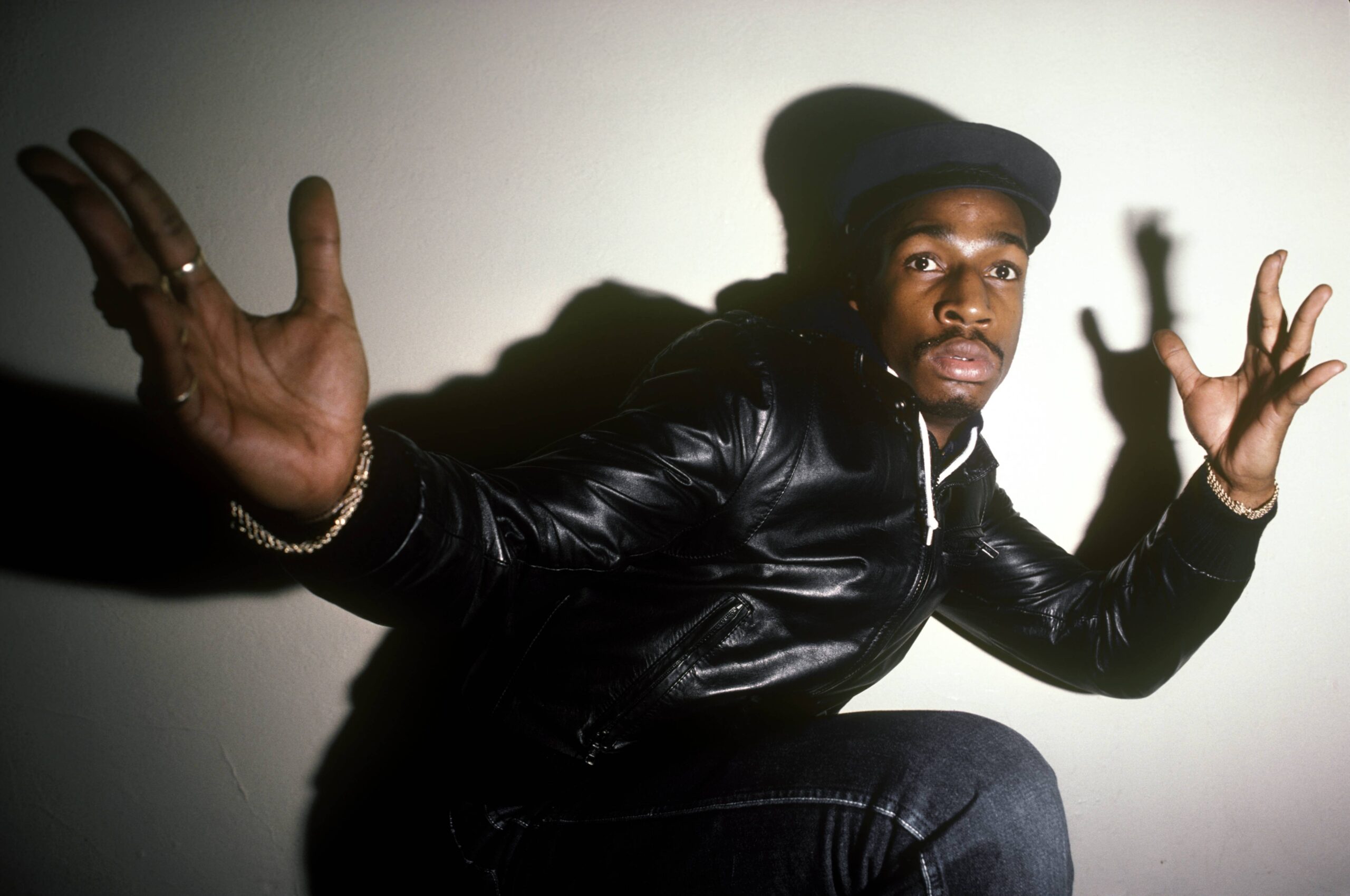Hip-hop as the world knows it likely wouldn’t exist without the early contributions of pioneering DJ/producer Grandmaster Flash — and we may not even know who Grandmaster Flash is without Debbie Harry. As co-founder of the New York City new wave band Blondie, Harry was always ahead of her time; the “it” girl of the ‘70s and ‘80s. She devised a way to not only bridge the gap between genres, but also elevate Black voices and talents.
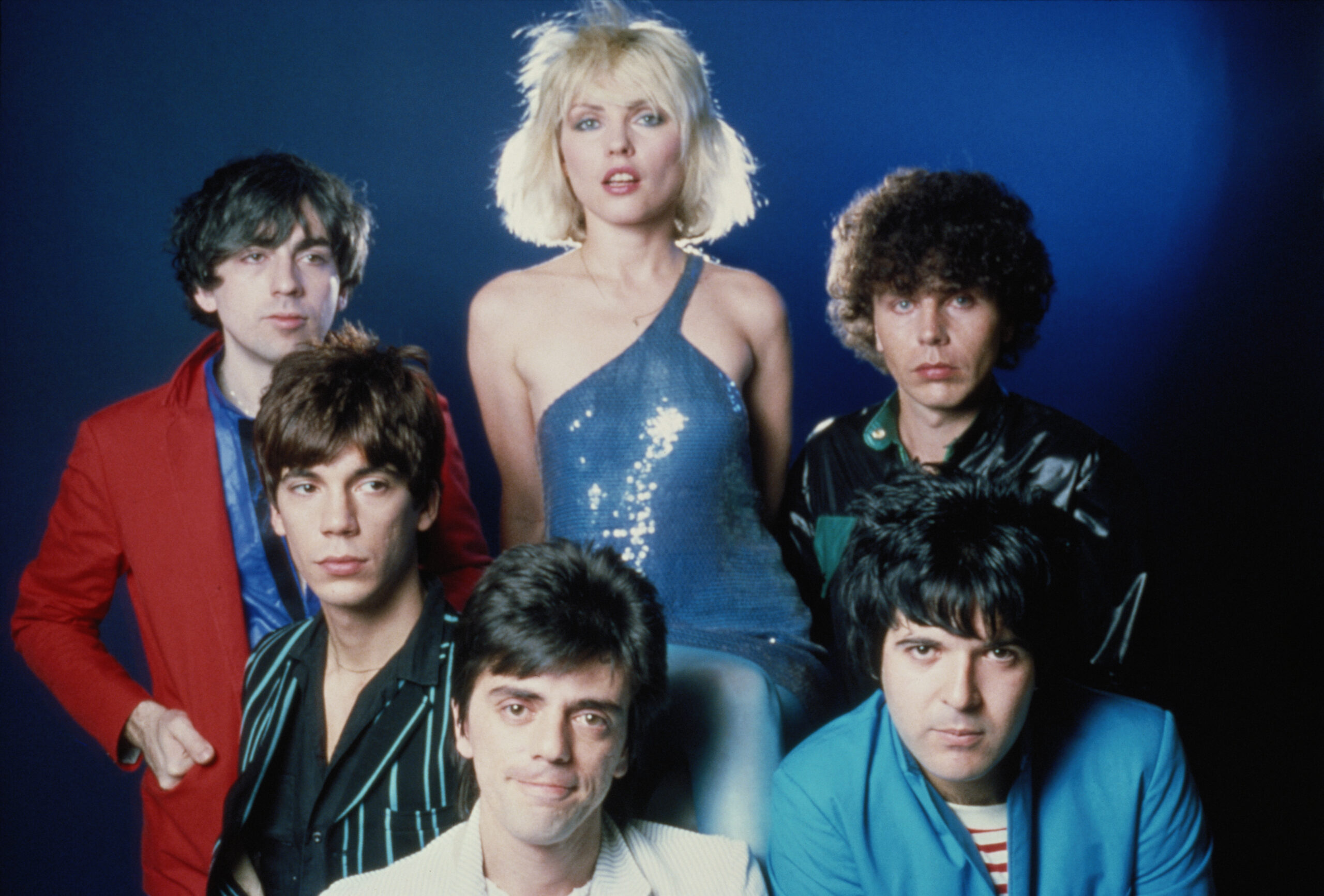
Along with a booming art scene that birthed the likes of Jean-Michel Basquiat and was the apex for Andy Warhol and Peter Max, New York City in the ‘70s was home to one of the most eclectic and exciting eras of music. From disco and hip-hop to new wave and punk, the city was a buzzing epicenter of all things cool — and nothing was cooler than Blondie. Fronted by the lithe but commanding former Playboy Club bunny, the band managed to retain its punk rock ethos while soaring to mainstream pop fame with songs such as “Call Me” and “Heart of Glass,” both No. 1 Billboard Hot 100 hits.
In January 1981, as hip-hop was still blossoming, Blondie released the second single off their fifth album Autoamerican, “Rapture,” an intriguing amalgamation of new wave, rap and disco. There’s a line in the song where Harry raps (yes, raps): “Fab Five Freddy told me everybody’s fly/DJ spinnin’ I said, ‘My my,’ Flash is fast, Flash is cool/François c’est pas, Flash ain’t no dude. (That last lyric has also been noted as “Flash et Nous Deux”.)
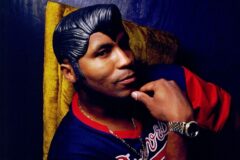
Also Read
WHEN HIP HOP WENT ULTRA
While “François” was a reference to French DJ François Kevorkian, “Flash” was Grandmaster Flash — a then-23-year-old innovator bubbling beneath the surface as one of the most talented DJs in the Bronx. And those three lines changed everything. Flash was still playing underground clubs and primarily embraced by a small sliver of the community. But Blondie exposed him to an entirely new audience, one that looked more like her.
“There was this young man who was one of my best friends, Fab 5 Freddy,” Grandmaster Flash, now 64, told us from a conference room in his Bronx studio. “One day, Fab 5 Freddy comes to one of my parties and says, ‘Yo, I got some friends downtown, Chris [Stein] and Blondie, and I’m gonna bring them up to jam in the Bronx.’ I’m looking at Freddy like, ‘Yeah right.’ A couple of weeks go by and — the majority of my audience was Blacks and Puerto Ricans, that’s my audience — there was this lady that was in the room, blonde hair, and Freddy was standing next to her.
“When I looked at her, I told Freddy to come up on stage and bring that person with him. I thought, ‘Who is this?’ She walks up to me and she’s like, ‘My name is Blondie [Debbie Harry] and I’ve been watching you for the last 20 minutes.’ And then she said to me, ‘I’m going to write a song about you.’ Mind you, at that time she’s already a super-duper incredibly off-the-hook pop star. I think she already had ‘Call Me’ out, which was huge. She said she was going to write a song about me. I kind of put a fake smile on like, ‘Thank you. Okay. A’ight.’”
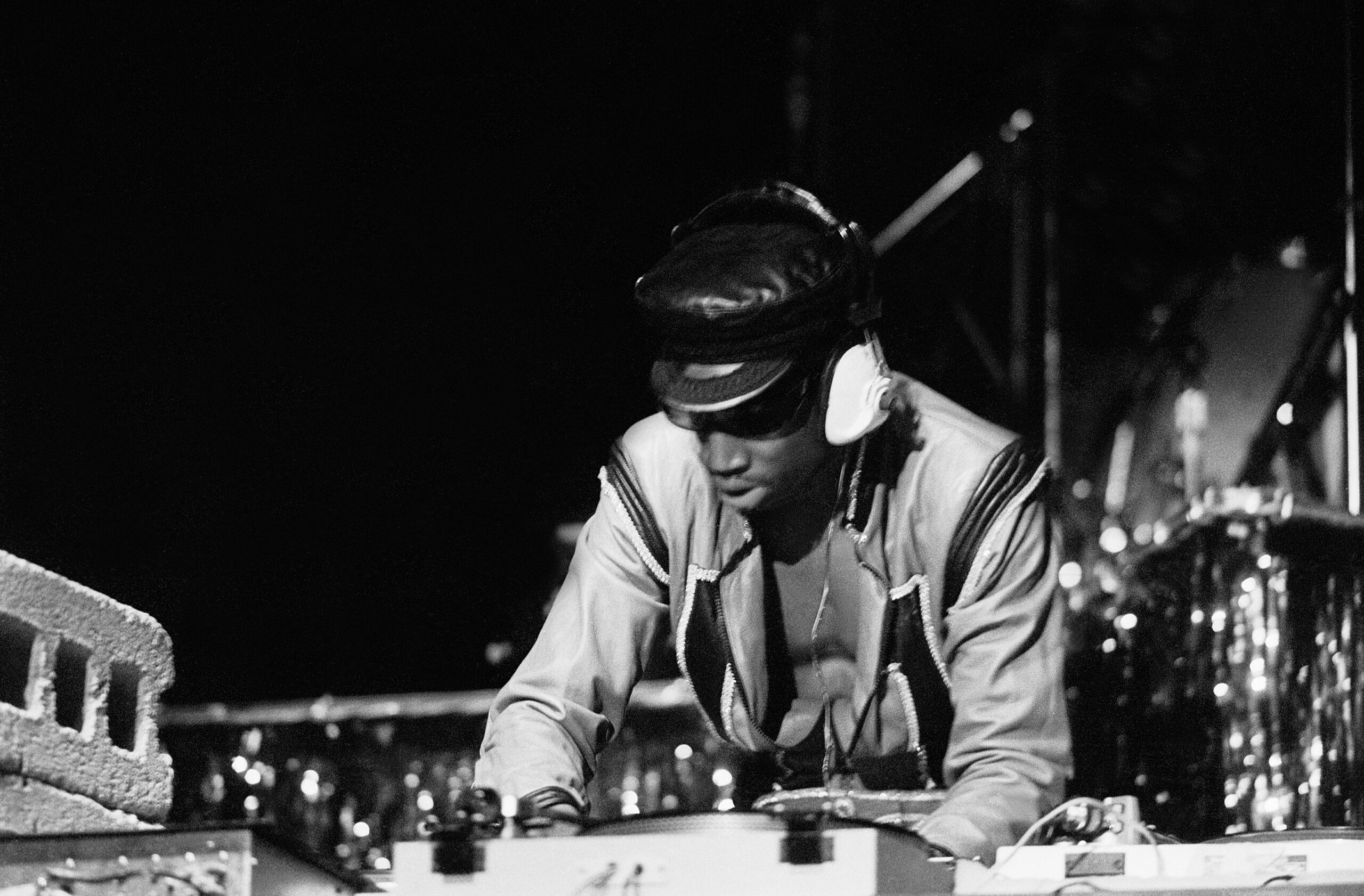
The night ended, Flash headed home and forgot about it. If anything, he thought there was no way Blondie would ever put him in a song. But about six months later, he got the surprise of his life.
“People were asking me, ‘Do you have a song out?’ and I’d say, ‘No, we’re not finished with the album yet,’” he continued. “They said, ‘No, there’s a song on the radio that’s talking about you.’ I’m like, ‘I don’t know what song that is.’ When I heard it on the radio, I was totally excited about it. She kept her word. Freddy kept his word. He brought Blondie to one of my functions in the Bronx. She said to me, ‘I’m going to write a song about you.’ She did and it changed my life. It absolutely took me into the white world, the mainstream.
“So now, as opposed to me playing for my Black people and my Spanish people, now I have this white audience that was looking at me, getting into me and grooving with me. She played a major role in that part right there. I thank her to this day.”
The sound of astonishment was still in Flash’s voice, a sense it’s still something he almost doesn’t believe actually happened.
“For her to even come into the Black world and want to hang with us and chill with us and be with us, and Chris Stein, was simply amazing,” he added.
Grandmaster Flash and his group the Furious Five (Scorpio, Melle Mel, Kidd Creole, Rahiem, Keef Cowboy) released “The Message” in 1982, often credited as the first socio-political rap song. It inspired a generation of socially-conscious artists, including Public Enemy and Boogie Down Productions, and was regularly sampled by rappers such as Ice Cube and Diddy who interpolated parts of it into their own work. Interestingly enough, Flash didn’t have anything to do with the writing of the song, a point of contention within the now-fractured group. Still, its complicated legacy lives on. In 2012, it was inducted into the Grammy Hall of Fame and has been named on countless “best of” lists.
Like Debbie, Flash is a bona-fide icon. In 2007, Grandmaster Flash and the Furious Five were inducted into the Rock & Roll Hall of Fame–the first hip-hop group to be inducted. Blondie was enshrined a year prior, and continues to tour (although co-founder Chris Stein is no longer able to join them on the road due to a heart condition). While Flash hasn’t spoken to Harry in “quite some time,” he expects that will change next year when hip-hop celebrates its 50th birthday.
“I haven’t seen Blondie in a while, but I know where to find her and she knows where to find me,” he said. “I’m sure this coming year we’ll speak.”
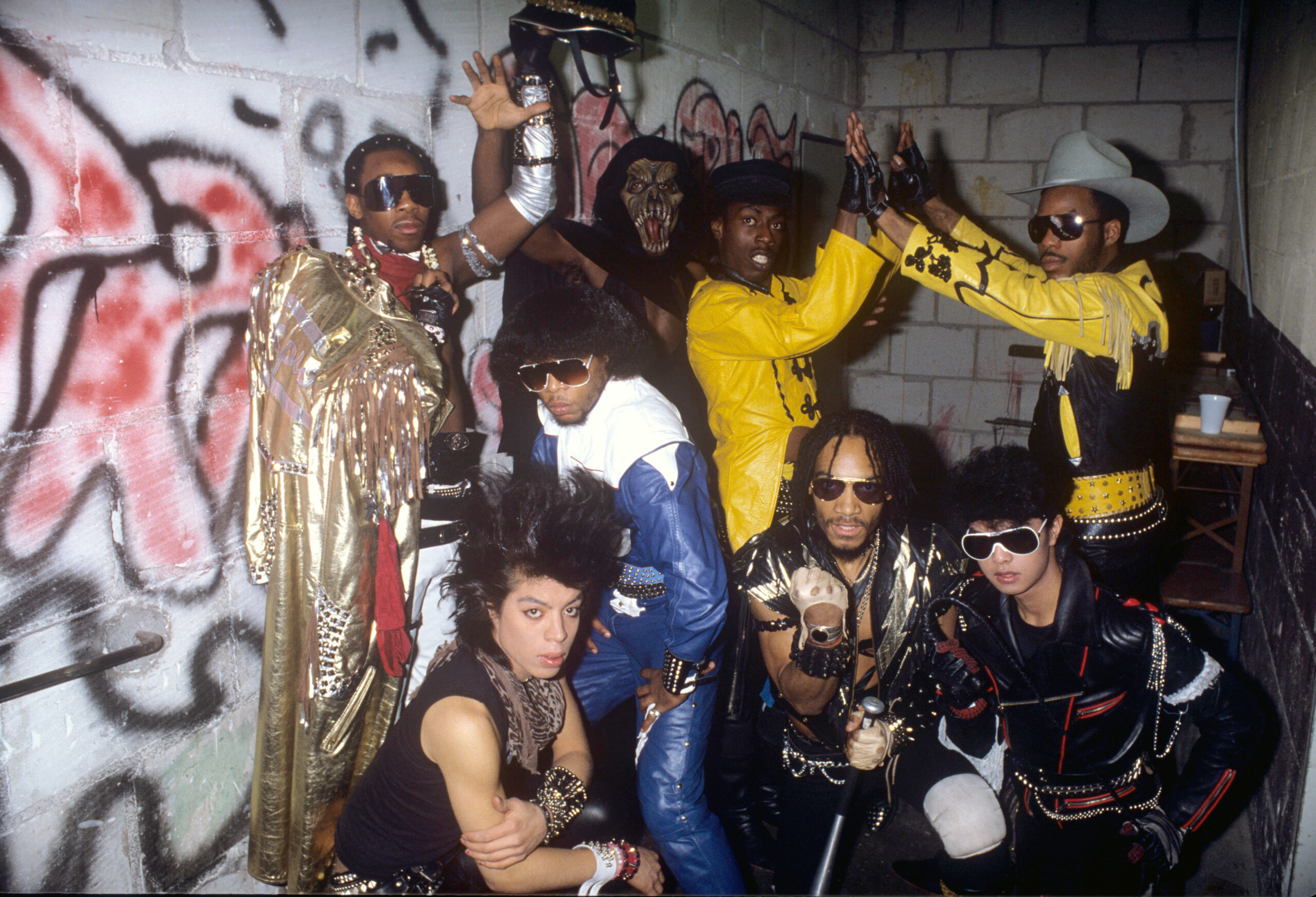
While the “Blondie effect” may have knocked down the doors for Flash, he kept them open. As the inventor of the Quick Mix Theory (commonly referred to as beat-juggling or the backspin technique), he blazed a trail for hip-hop to truly thrive for decades to come. Last month, Flash met up with New York City mayor Eric Adams along with several hip-hop luminaries such as Roxanne Shanté, Slick Rick, DJ Chuck Chillout, Eric B. and Master Gee. Together, they announced a series of events that will take place in 2023 to celebrate the 50th anniversary, a testament to the resilience and perseverance of hip-hop culture. For Flash, it was a full circle moment that solidified his impact.
“It started with nothing. A lot of times, people that are builders sometimes don’t get to see their idea come to full fruition. So here we are, I get to see it live and in living color. And some incredible artists have come after me, and it’s great to see where the breakdancing went and it’s wonderful to see where the graffiti artists went and where the rappers and MCs went and where the DJs are. It was recreation. It’s like when Mom said, ‘Go outside and play.’ That’s what this is. Here it is now, big business. It’s actually quite wonderful.
“For me it just says the Quick Mix theory now gets to be talked about and how I came up with the musical bed so rappers had a beat to speak on since the ‘70s. Now I can talk about it and people want to listen. Hip-hop was started by DJs. Now these topics become the topics. It’s a wonderful thing being one of the godfathers and architects of the culture. Just wonderful.”
Grandmaster Flash will release a series of exclusive vignettes on his social media platforms the third week of December.

